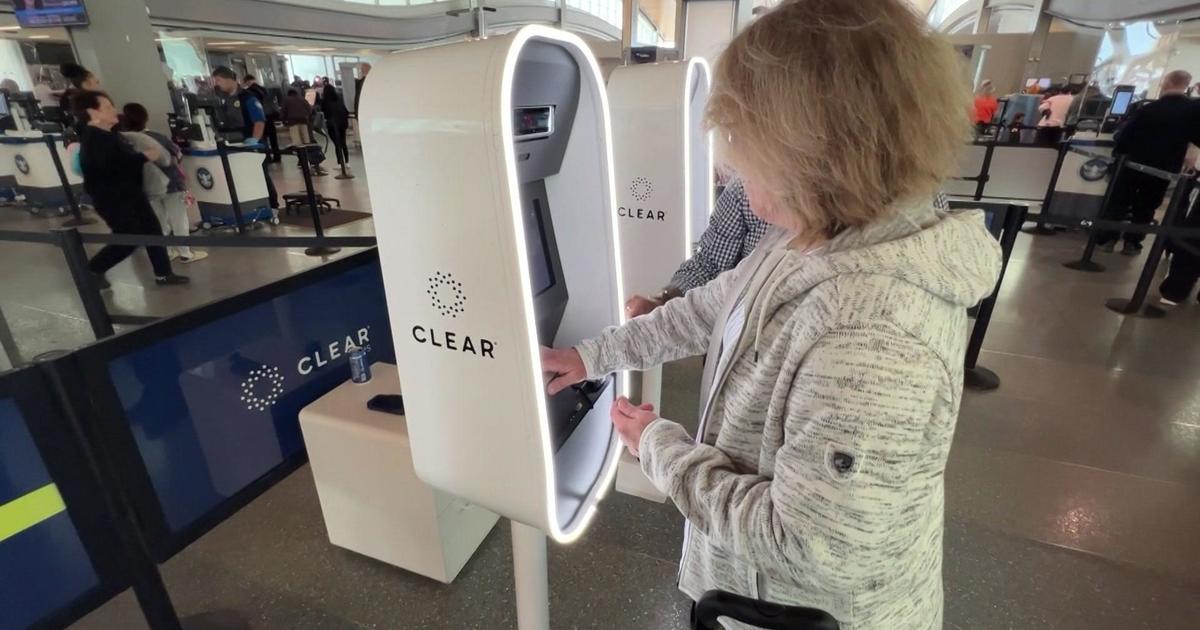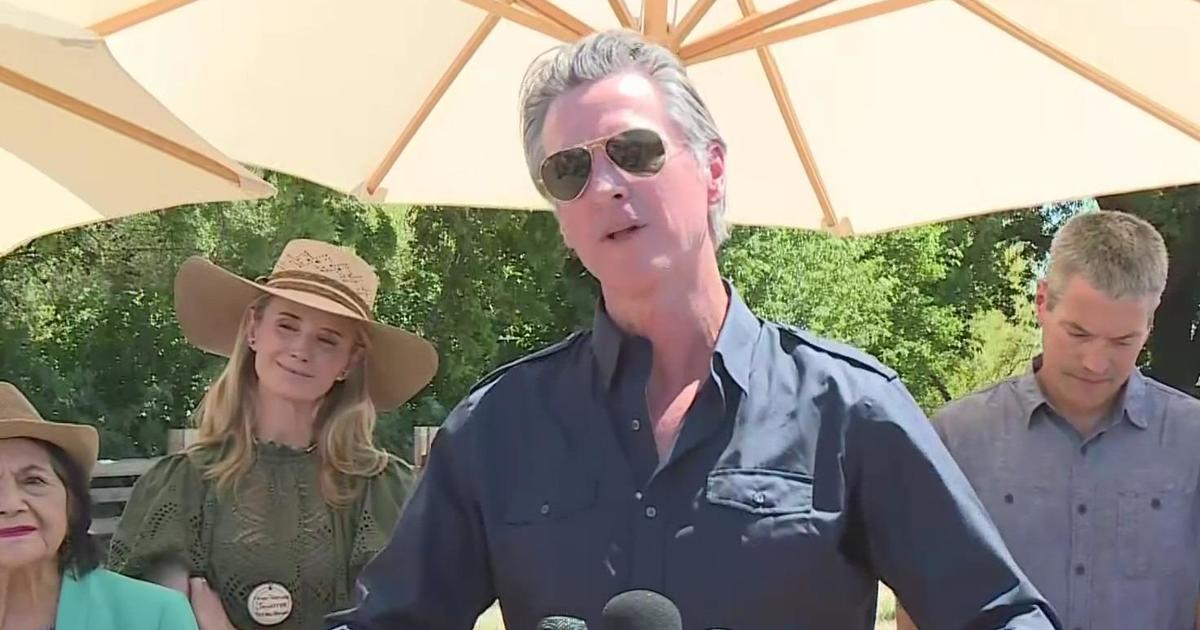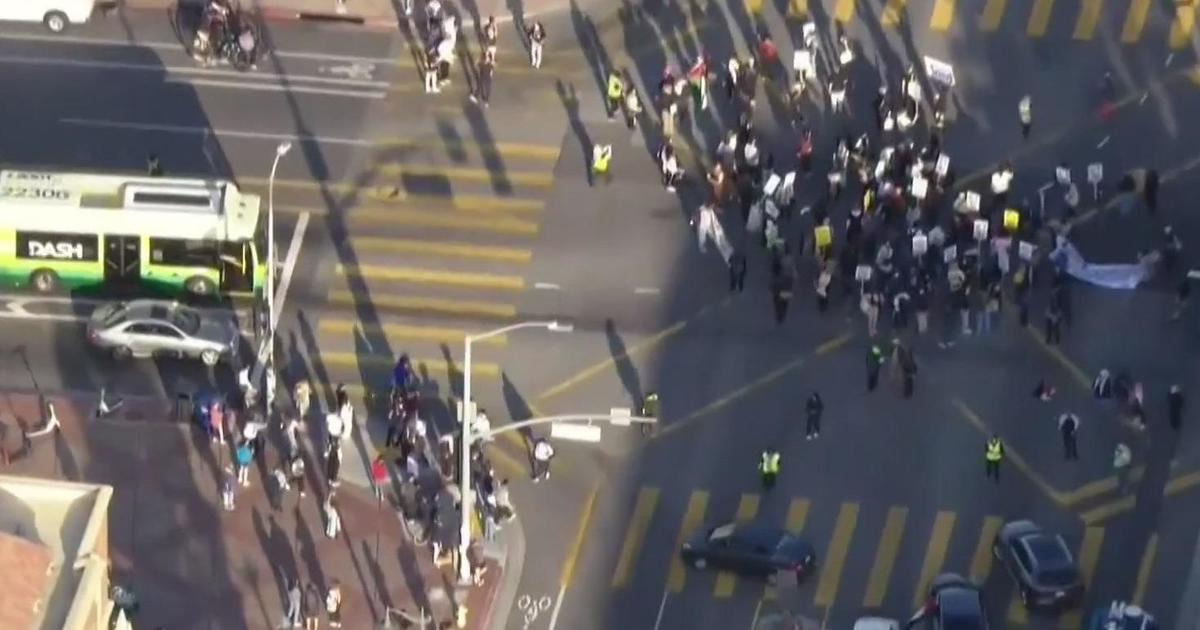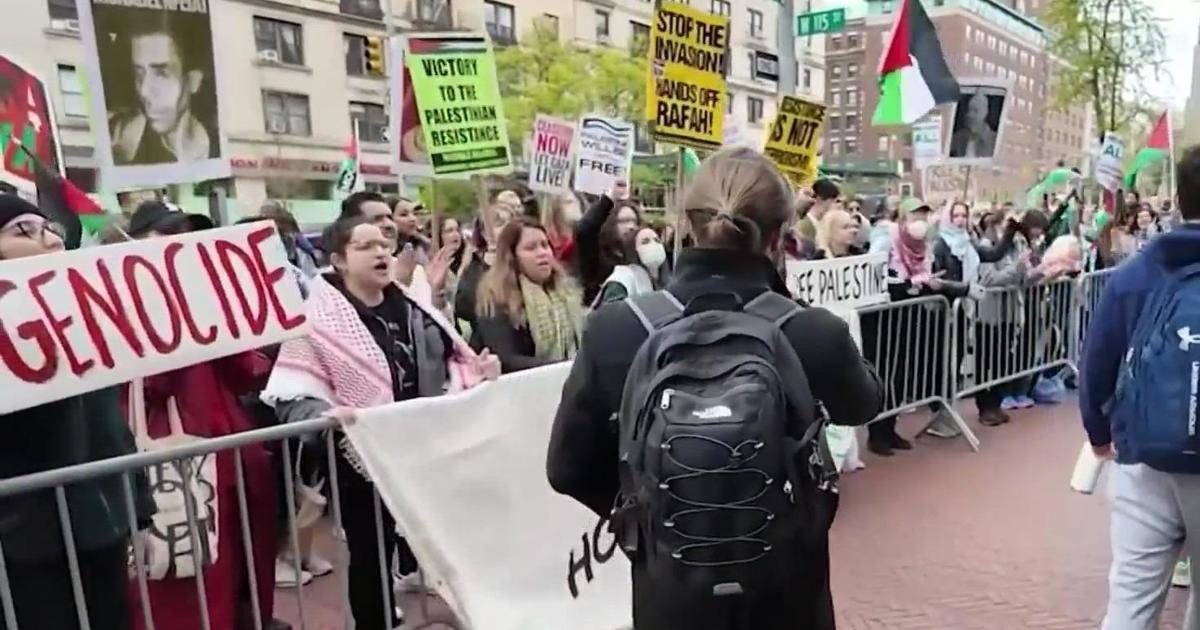Calm, But No Plans Yet From California Governor Amid Unrest
SACRAMENTO, Calif. (AP) — When California Gov. Gavin Newsom addressed the protests over police brutality and accompanying violence that had dominated his state over the weekend, he declared that for too long state leaders had not addressed systemic racism and called for an end to lip service without action.
"Our institutions are responsible. We are accountable in this moment," he said Monday from a church in Sacramento.
It was his first time addressing the public after a weekend of unrest in which he declared a state of emergency and sent the National Guard to Los Angeles at the mayor's request. In his speech that followed, he did not endorse policy changes or announce any concrete actions in response to protests over the death of George Floyd, a Minneapolis man who begged for air as a police officer held his knee on his neck last week.
Some said his tone was spot on during a tumultuous time for the state. Sen. Holly Mitchell, a Democrat from Los Angeles and a member of the Legislative Black Caucus, said she wouldn't want Newsom to roll out policy initiatives without "input from the right people."
"He stood square, looked into the camera, said that racism needed to end and it wasn't black people's responsibility to fix it," Mitchell said.
Newsom joined Mitchell in Los Angeles on Wednesday, visiting black-owned businesses including a coffee shop and a bookstore, according to her Twitter posts. He did not make public remarks.
But Assemblywoman Sydney Kamlager, another Democrat and caucus member from Los Angeles, said she would like to see the governor use his platform to advocate for concrete change.
She questioned the decision to deploy National Guard troops to quell unrest, which she said causes fear in many communities. Kamlager has introduced legislation that would pay community groups to respond to some crises instead of the police, as well as an effort to reform the parole system.
"We should be using our bully pulpit to say, 'This might be uncomfortable, but we have a responsibility to look at our systems and say how do we make them better?' " she said. "You don't do that by sending in the National Guard."
Newsom has sent in a total of 4,500 Guard troops to cities including Los Angeles, Sacramento and Long Beach at the request of local law enforcement. Similarly, Newsom said the state government's role has largely been to assist local governments with additional resources such as the California Highway Patrol and others.
He declined to directly respond to a reporter's question about President Donald Trump's calls for guard troops to "dominate the streets," or his threats to send soldiers into states if local leaders do not get violence under control. Spokesman Jesse Melgar said Newsom "strongly disagrees" with Trump's actions on Monday night for law enforcement to clear and tear gas peaceful protesters from the street outside the White House.
Newsom's response to the statewide protests and violence has been notably different from his response to the coronavirus pandemic that is still gripping the state and nation. When the virus was first being detected in California, Newsom held a news conference on every weekday and some weekends, rolling out a litany of actions and specific details about how the state was responding.
In contrast, he spoke Friday about racial justice and Floyd's killing but waited until Monday to address the state again, even as scenes of both peaceful protesting and violence including smashing store windows, stealing and setting fires played out all weekend. On Tuesday, Newsom cleaned up graffiti in downtown Sacramento alongside local activists, including the brother of Stephon Clark, a black man killed by Sacramento police in 2018.
"Gavin Newsom has been better on (the coronavirus) than he has been so far on the rebellion response. But he has spoken into it and he has said the right things," said James Lance Taylor, a professor of political science at the University of San Francisco. "He has been on the right side of these issues long before this happened."
But Taylor said it wasn't just Newsom who could have been more vocal in what he described as a "vacuum of leadership" nationwide last weekend, with few politicians speaking about the chaos.
He noted that Newsom, like any politician, straddled his role.
"He has to stand on the side of the law, but he's also on the side of the people. He's in a very difficult position," Taylor said.
Outside of the public eye, Newsom's office says he's been engaged with a diverse group of leaders and has tasked his senior leadership to determine how his administration can tackle systemic injustices. Newsom signed legislation last year restricting police use of force. And he has made it a point to address racial disparities when discussing the coronavirus. He plans to visit Los Angeles, the epicenter of the pandemic in California and the center of protests, later this week.
"The Governor is aware of his privilege and that this is a moment for elected officials like him to listen, reflect and commit themselves to rooting out systemic injustice and racism," Melgar, the spokesman, said. "He's been focused on doing the work behind the scenes."
Eric Schickler, a political science professor at the University of California-Berkeley, said he expects to see Newsom out and about more if the protests continue.
"I think he still has an opportunity to get out there and craft a kind of proactive governmental response to what's going on," Shickler said.



